TCT 2024 Late-Breaking Science Collection
Published: 17 October 2024
-
Views:
 2697
2697
-
Likes:
 7
7
-
Views:
 2697
2697
-
Likes:
 7
7
-
 6m 24sPart 3 | Session 1 5 Trials That Will Change My Practice with Dr Mirvat Alasnag
6m 24sPart 3 | Session 1 5 Trials That Will Change My Practice with Dr Mirvat Alasnag -
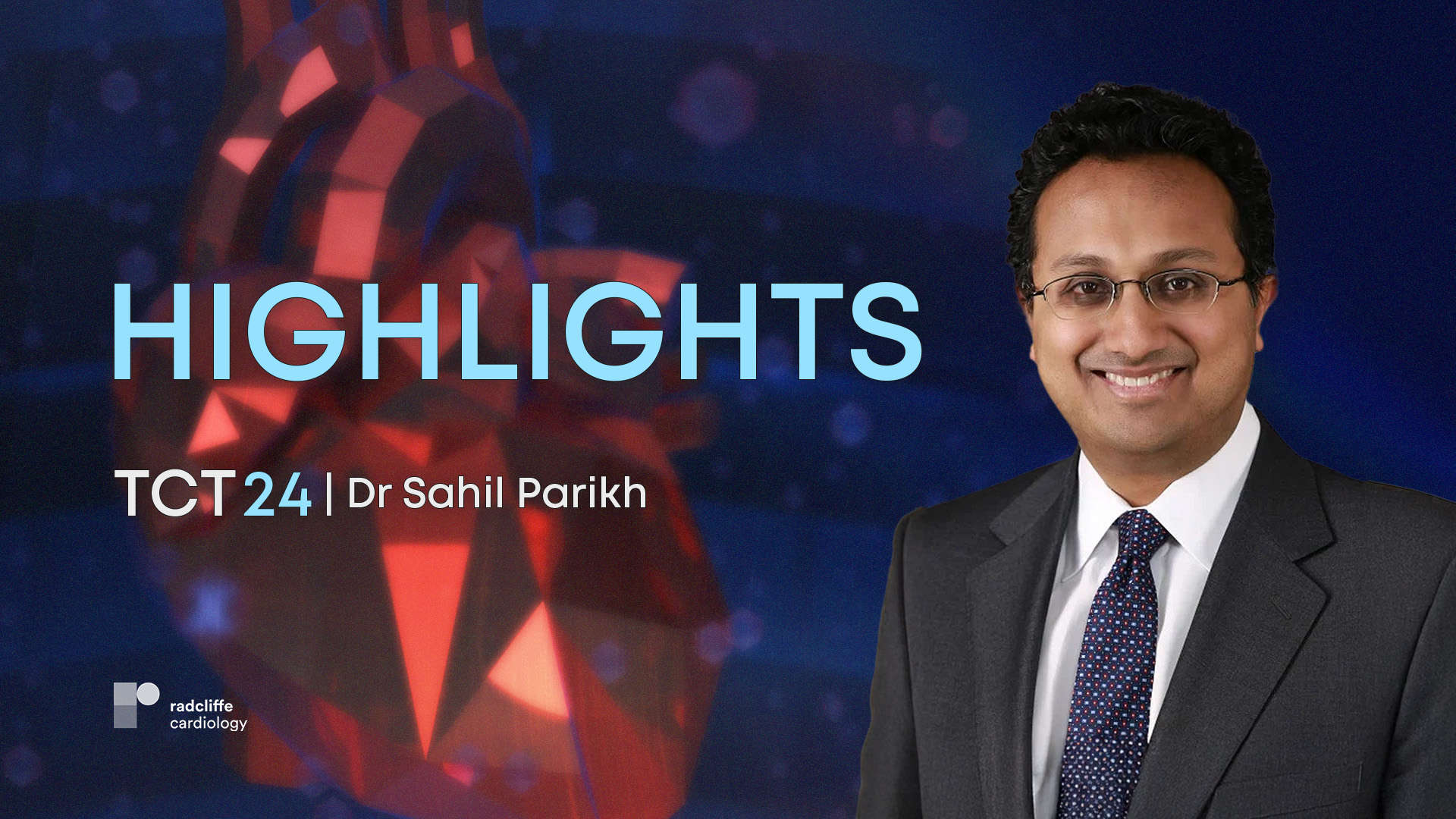 5m 1sPart 3 | Session 2 2 Trials That Will Change My Practice with Dr Sahil Parikh
5m 1sPart 3 | Session 2 2 Trials That Will Change My Practice with Dr Sahil Parikh
-
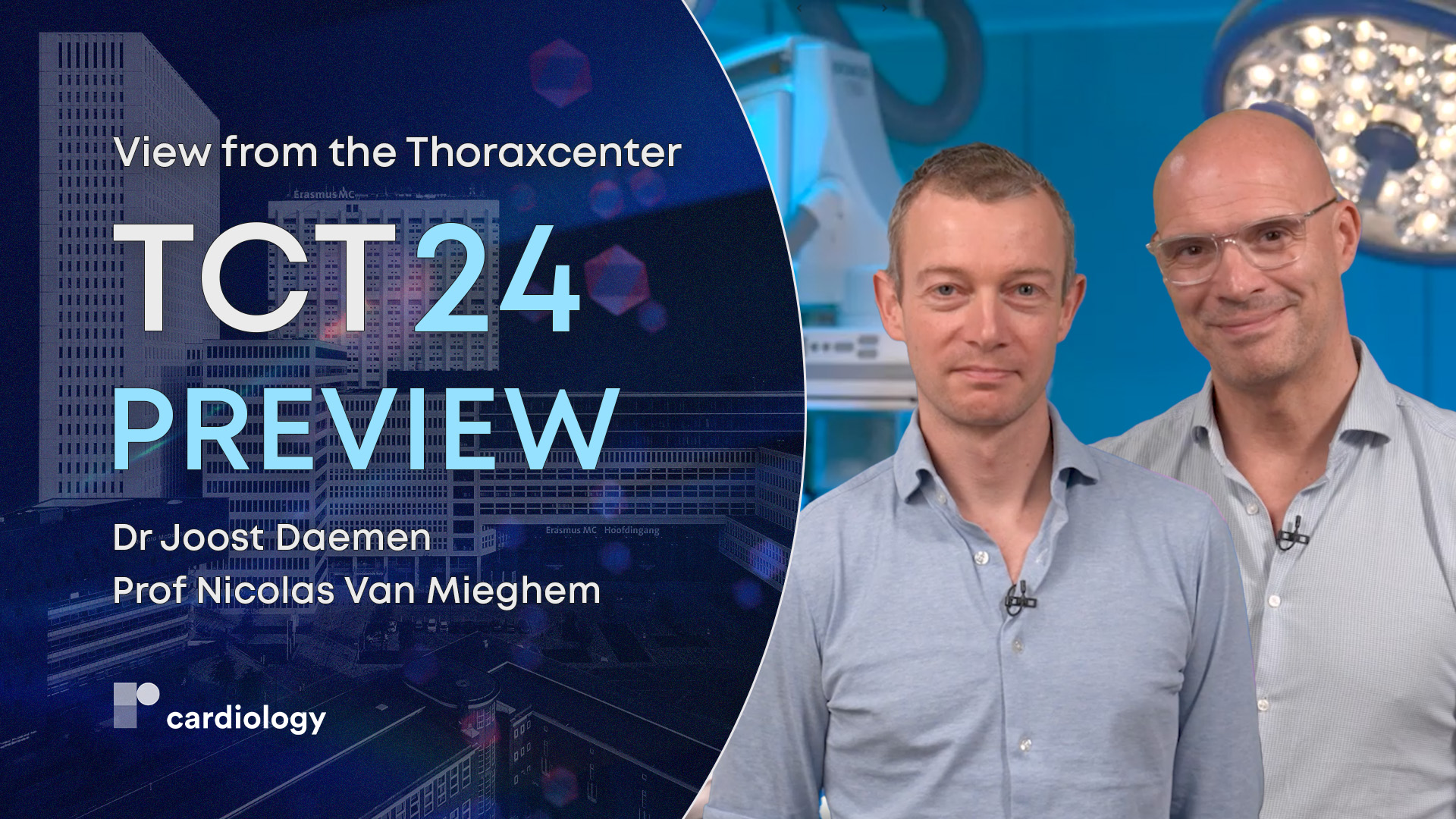 38m 7sPart 1 View from the Thoraxcenter: TCT 24 Late-breaking Preview Nicolas M Van Mieghem, Joost Daemen
38m 7sPart 1 View from the Thoraxcenter: TCT 24 Late-breaking Preview Nicolas M Van Mieghem, Joost Daemen
-
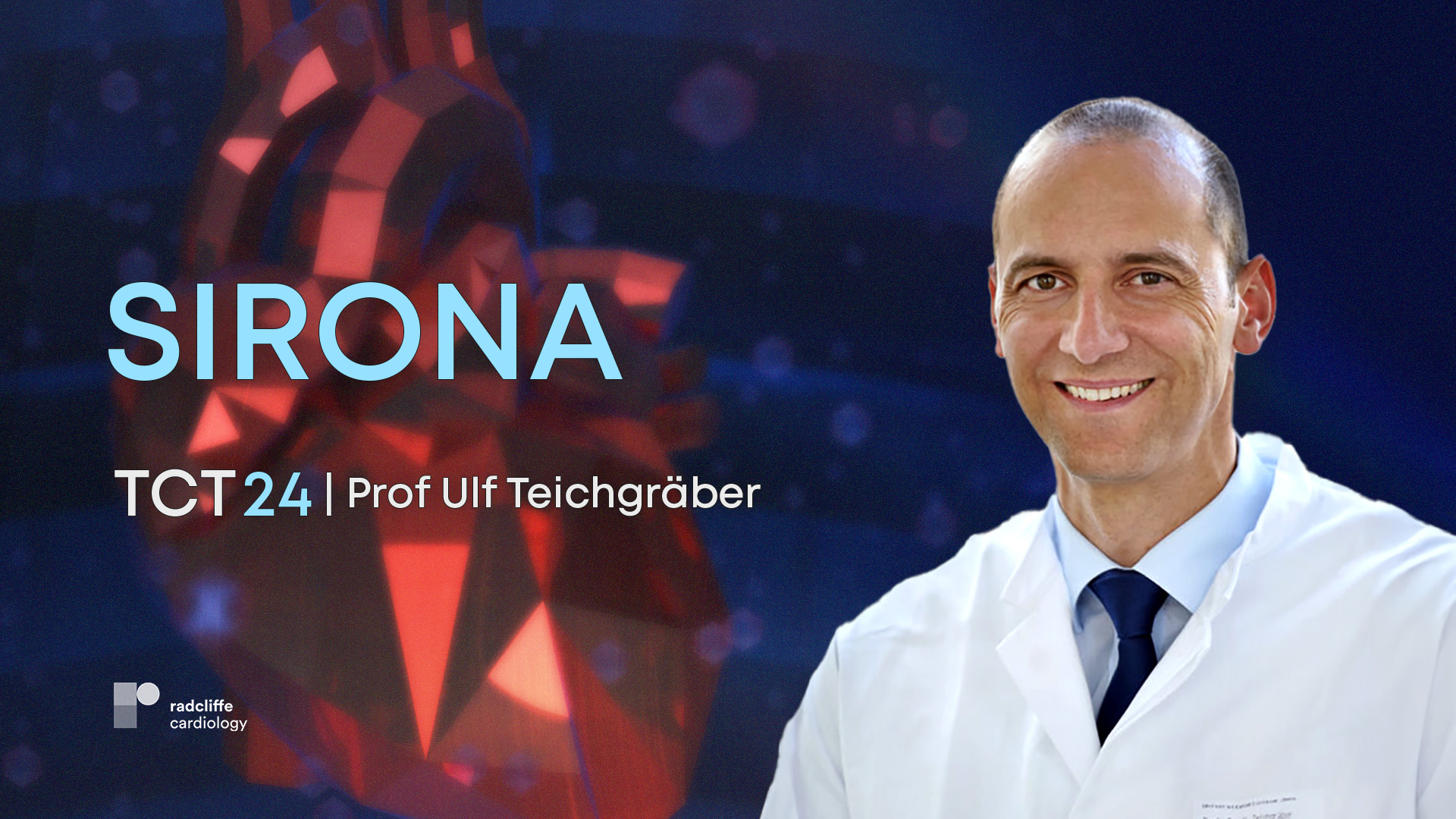 7m 10sPart 2 | Session 1 SIRONA: Sirolimus- vs. Paclitaxel-Coated Balloon Angioplasty in the Femoropopliteal Artery Ulf Teichgräber
7m 10sPart 2 | Session 1 SIRONA: Sirolimus- vs. Paclitaxel-Coated Balloon Angioplasty in the Femoropopliteal Artery Ulf Teichgräber
-
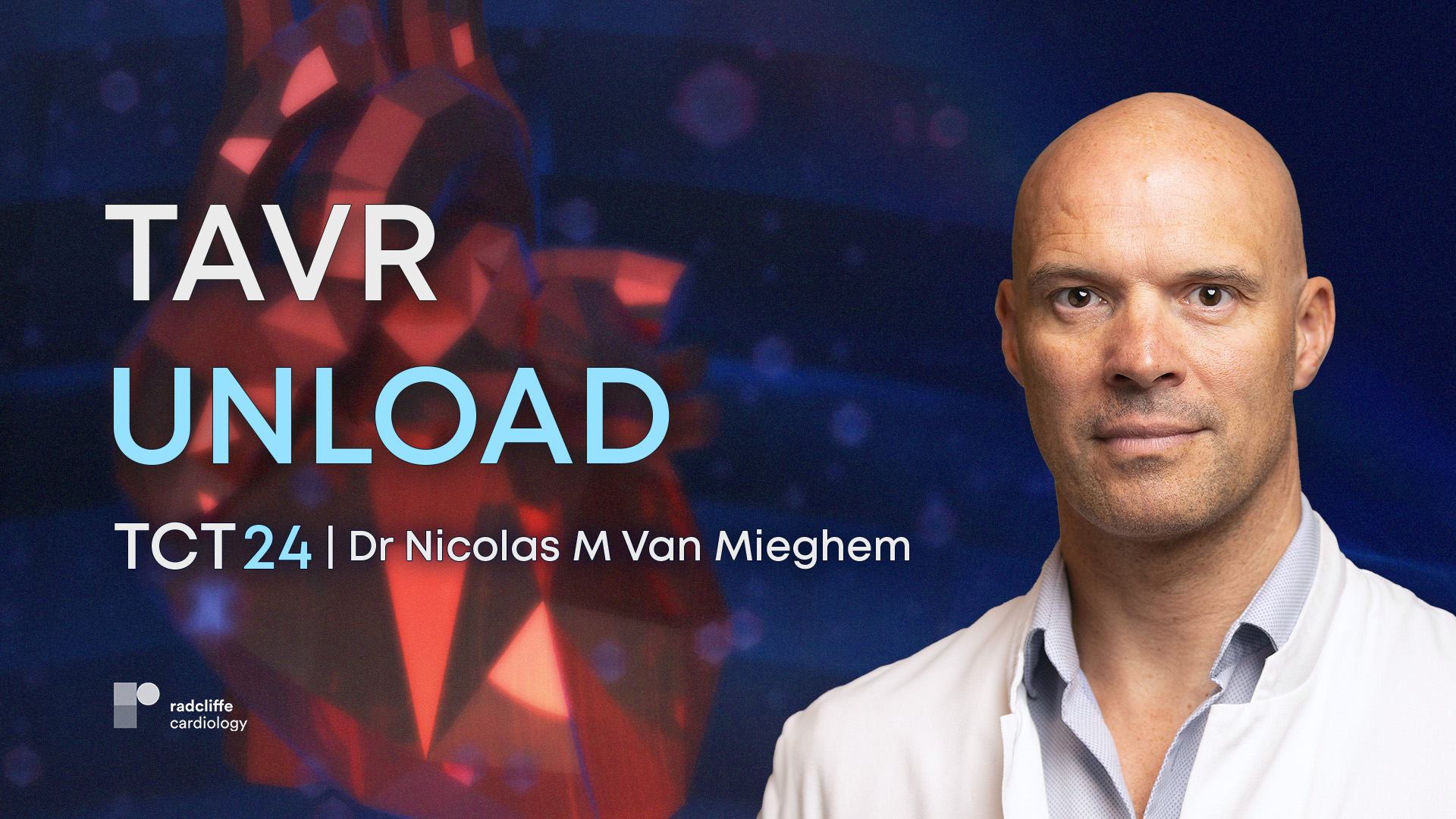 4m 10sPart 2 | Session 2 TAVR UNLOAD: Transcatheter Aortic Valve Replacement in Patients with Heart Failure and Moderate Aortic Stenosis Nicolas M Van Mieghem
4m 10sPart 2 | Session 2 TAVR UNLOAD: Transcatheter Aortic Valve Replacement in Patients with Heart Failure and Moderate Aortic Stenosis Nicolas M Van Mieghem
-
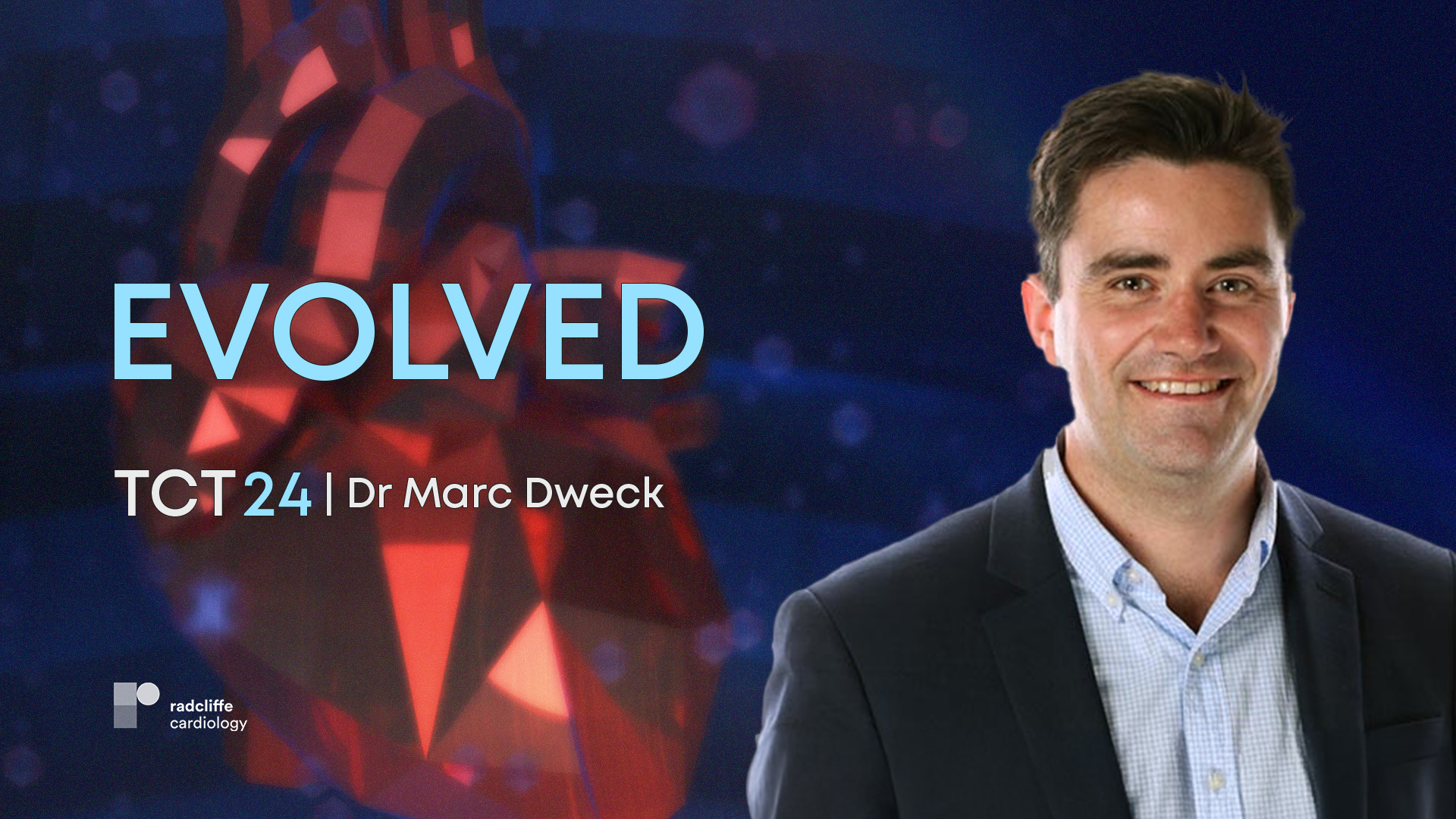 4m 19sPart 2 | Session 3 EVOLVED: Early Intervention in Patients with Asymptomatic Severe Aortic Stenosis and Left Ventricular Decompensation Marc Dweck
4m 19sPart 2 | Session 3 EVOLVED: Early Intervention in Patients with Asymptomatic Severe Aortic Stenosis and Left Ventricular Decompensation Marc Dweck
-
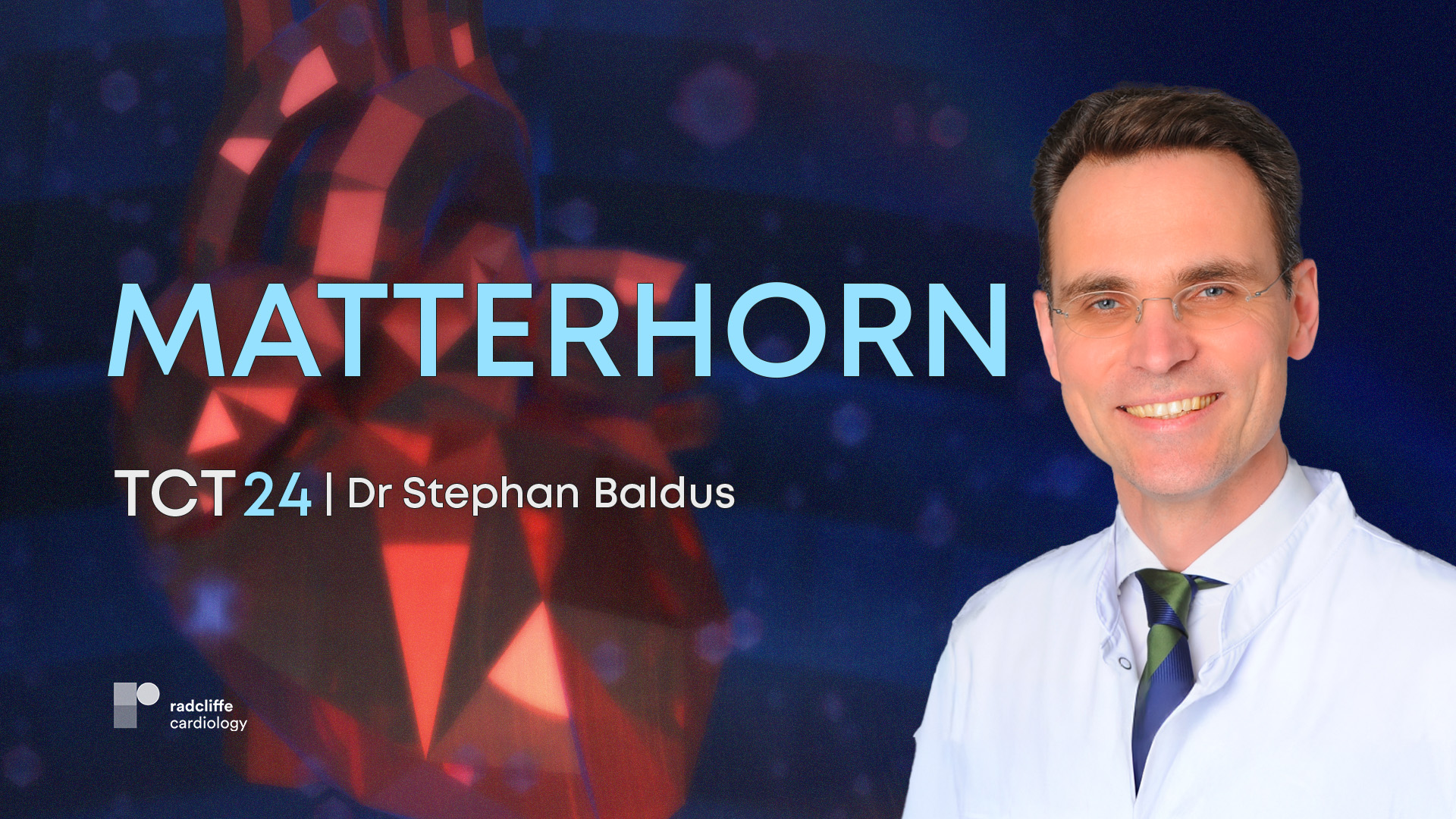 5m 36sPart 2 | Session 4 MATTERHORN: Transcatheter Repair Versus Surgery in Mitral Regurgitation Stephan Baldus
5m 36sPart 2 | Session 4 MATTERHORN: Transcatheter Repair Versus Surgery in Mitral Regurgitation Stephan Baldus
-
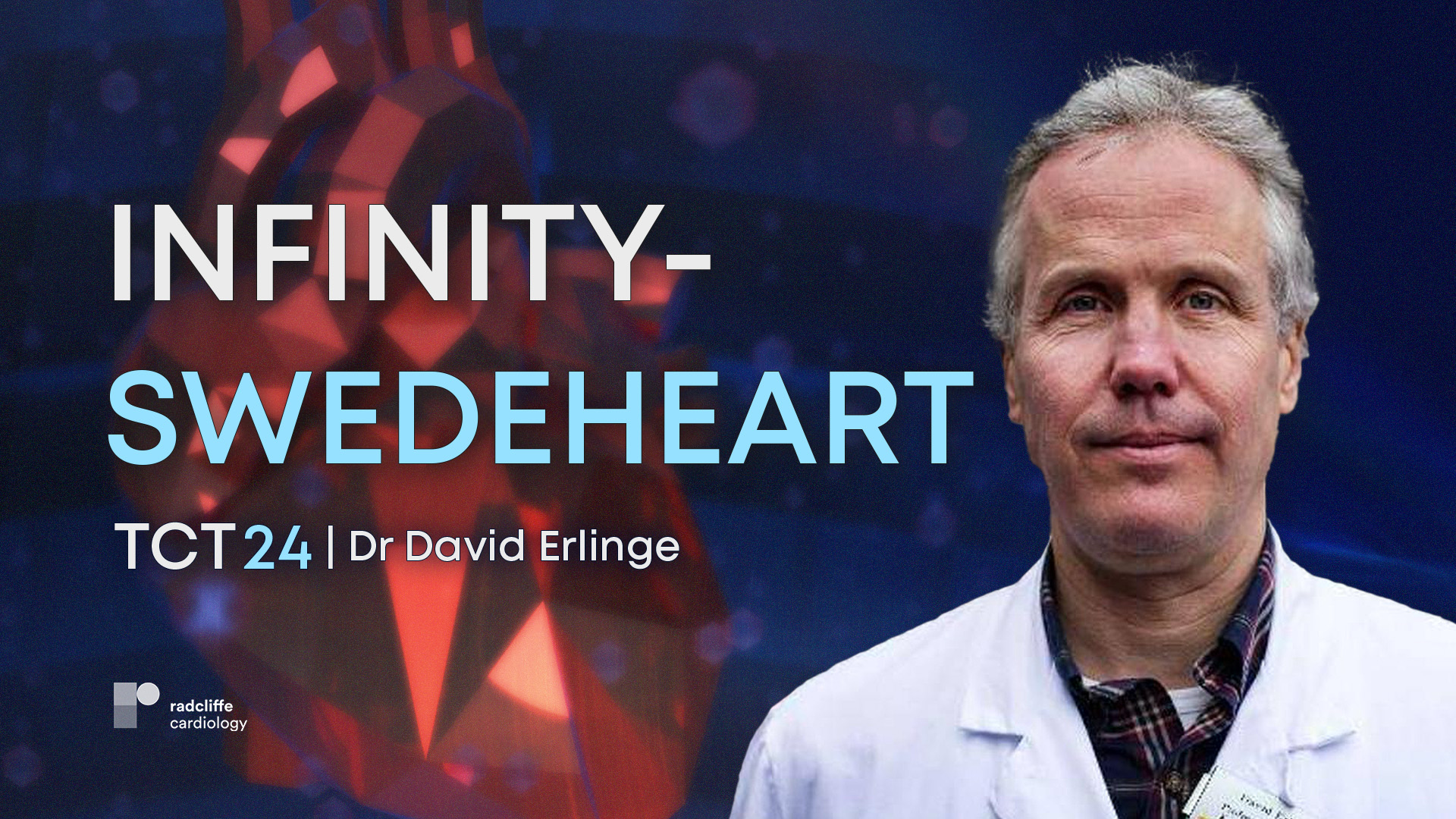 3m 34sPart 2 | Session 5 INFINITY-SWEDEHEART: DynamX Bioadaptor in Patients with Complex Lesions David Erlinge
3m 34sPart 2 | Session 5 INFINITY-SWEDEHEART: DynamX Bioadaptor in Patients with Complex Lesions David Erlinge
Overview
Keep informed with our video collection unveiling data from the Transcatheter Cardiovascular Therapeutics Conference in Washington. With expert insights on late-breaking trials and critical findings, you won't want to miss our #TCT24 coverage.
- For practice-focused reviews of the most anticipated trials, watch our recurring View From the Thoraxcenter series, hosted by Prof Nicolas Van Mieghem and Dr Joost Daemen (Thoraxcenter, Erasmus MC, Rotterdam, NL).
- Our short Expert Interviews with select faculty offer focused data analysis and take-home messages for practice.
- To delve deeper into insights on the most pertinent trials, catch our Highlights.
Dive into the latest cardiology research with our upcoming TCT Conference coverage.
More from this programme
Part 1
View From the Thoraxcenter: What's Hot at TCT 24?
Part 2
Expert Interviews
About the episode
TCT Conference 2024 - Safety and efficacy outcomes of transcatheter aortic valve replacement (TAVR) compared to surgical aortic valve replacement (SAVR) in female patients with severe aortic stenosis.
Dr Didier Tchétché (Clinique Pasteur, FR) joins us onsite at TCT Conference to discuss the pooled findings from the RHEIA (NCT04160130) and PARTNER 3 (NCT02675114) trials.
RHEIA and PARTNER 3 are prospective, controlled, multi-center trials, and in the pooled anlysis, 712 patients with severe aortic stenosis were randomized to receive either the SAPIEN 3 device (Edwards Lifesciences) or SAVR. In the RHEIA trial, all-female patients were enrolled and were followed-up at 30 days in-person, 6 months by telephone contact and visited in-person again at 1 year. In the PARTNER 3 trial, male and female patients were enrolled and seen for follow-up visits at discharge, 30 days, 6 months and annually through 10 years. The primary outcome measures for both trials were mortality, stroke and re-hopitalisation.
This analysis found that in women with symptomatic, severe aortic stenosis receiving TAVR with the SAPIEN 3 or SAPIEN 3 Ultra System, or surgical aortic valve replacement, the primary composite endpoint was superior for TAVR compared to surgery due to lower rehospitalization rates in this arm. Low rates of reintervention, endocarditis and thrombosis were observed in both treatment groups.
Interview Questions:
1. What are the gender-related patient profile differences between patients receiving transcatheter heart valve replacement?
2. Could you tell us about the trials' study designs and patient populations?
3. What were the key findings?
4. How should these findings impact clinical practice?
5. What further study is needed in this area?
Recorded at TCT Conference in Washington, 2024.
Editors: Yazmin Sadik, Jordan Rance
Video Specialist: David Ben-Harosh, Oliver Miles
Support: This is an independent interview produced by Radcliffe Cardiology.
Faculty Biographies

Didier Tchétché
Didier Tchétché, (Clinique Pasteur, Toulouse, France) Graduated from the University of Paris V where Dr Tchétché obtained his post-graduate diploma of cardiovascular pathology in 2004. From 2004 to 2005, he completed a 12-month fellowship period in the Hemodynamic and Interventional Cardiology department of Clinique Pasteur in Toulouse and from 2005 to 2007 he was Head Assistant at the intensive care unit of Bichât Hospital in Paris.
In 2008, he joined the interventional cardiovascular group in Clinique Pasteur, Toulouse, and he is currently Head of the Structural programme with an experience of more than 5000 TAVI procedures. His main areas of interest are coronary interventions and valvular heart disease. He has been actively involved in many clinical trials involving new technologies and devices in the field of interventional cardiology.






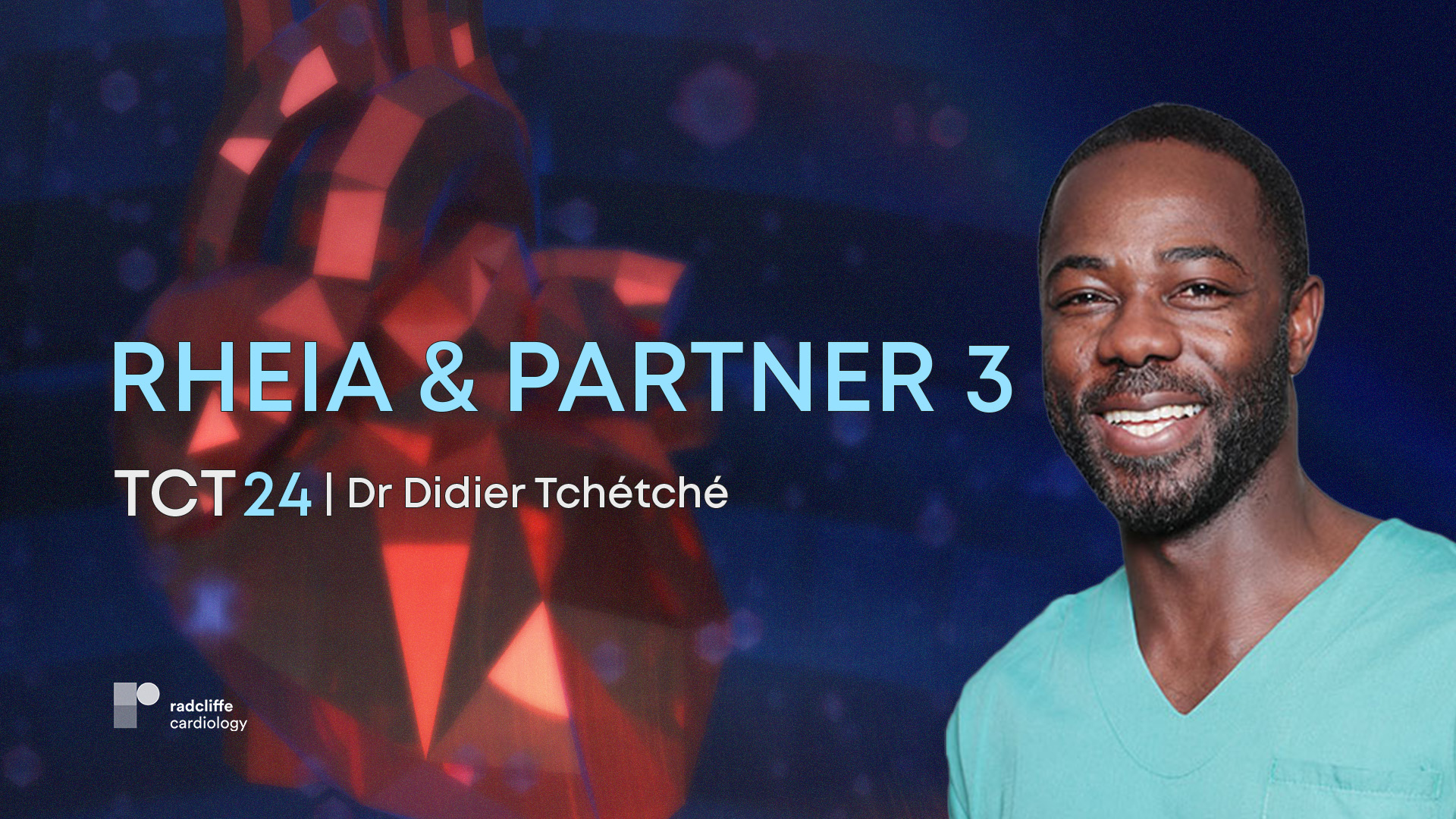
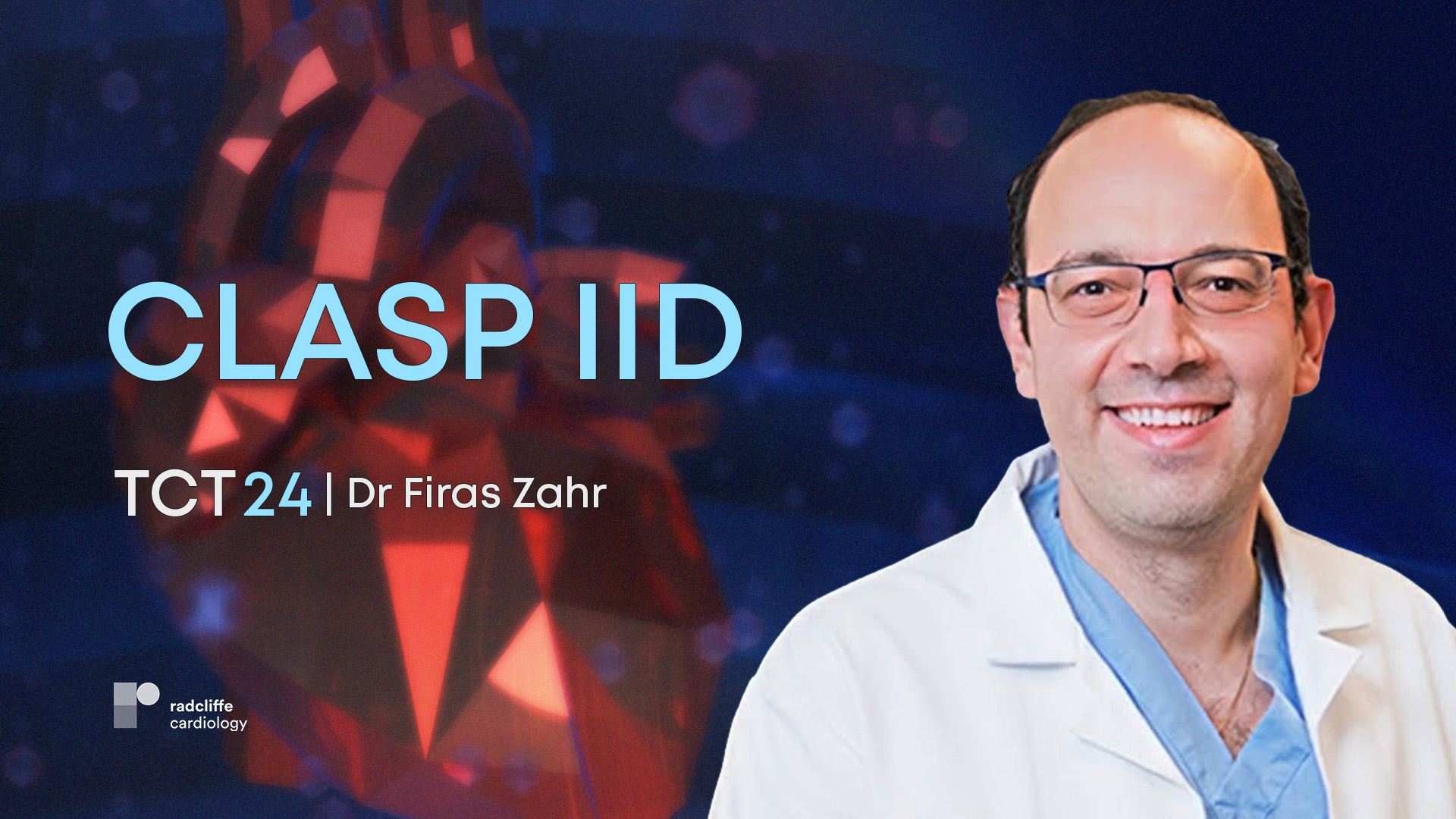
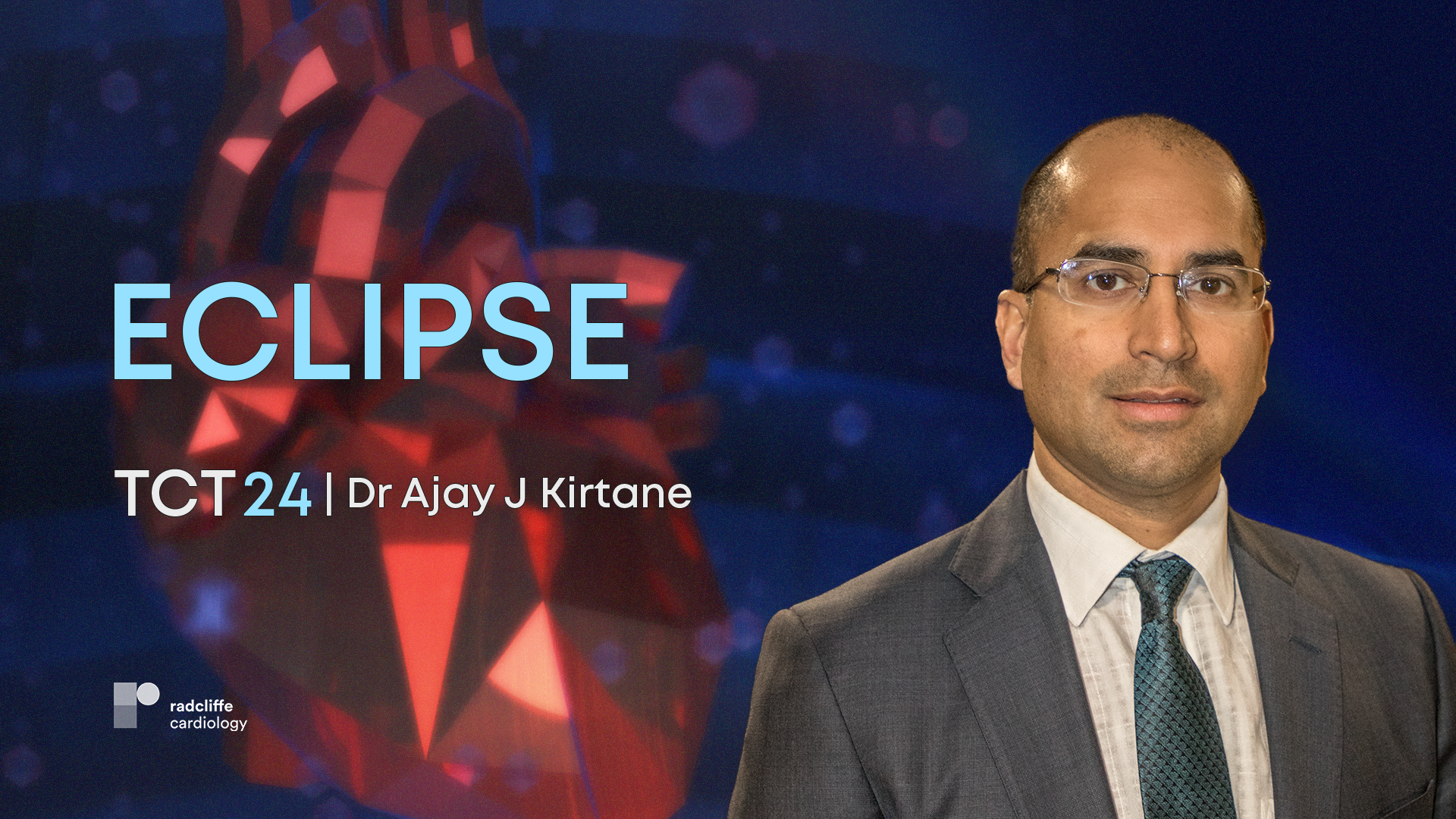
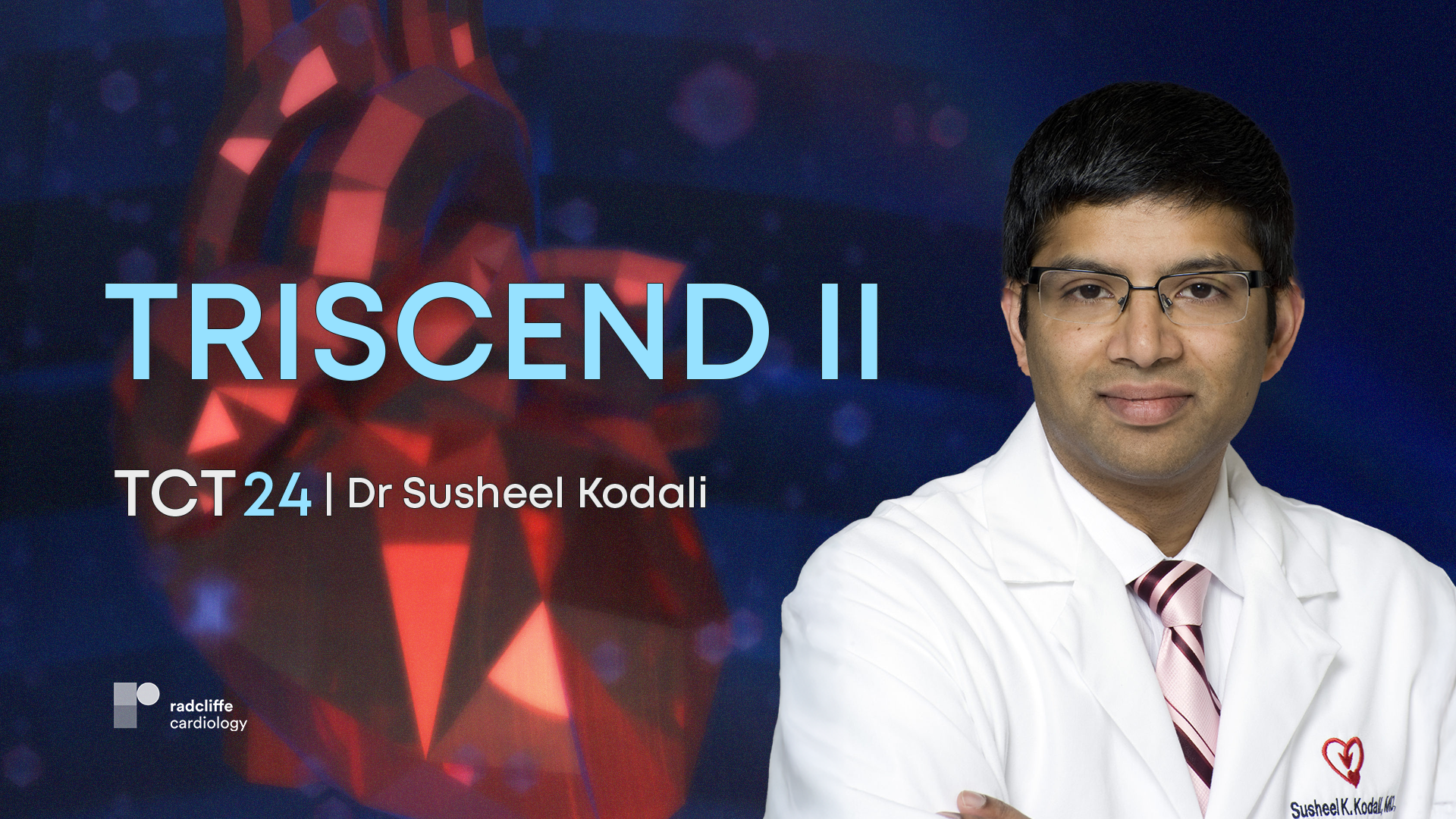
Comments